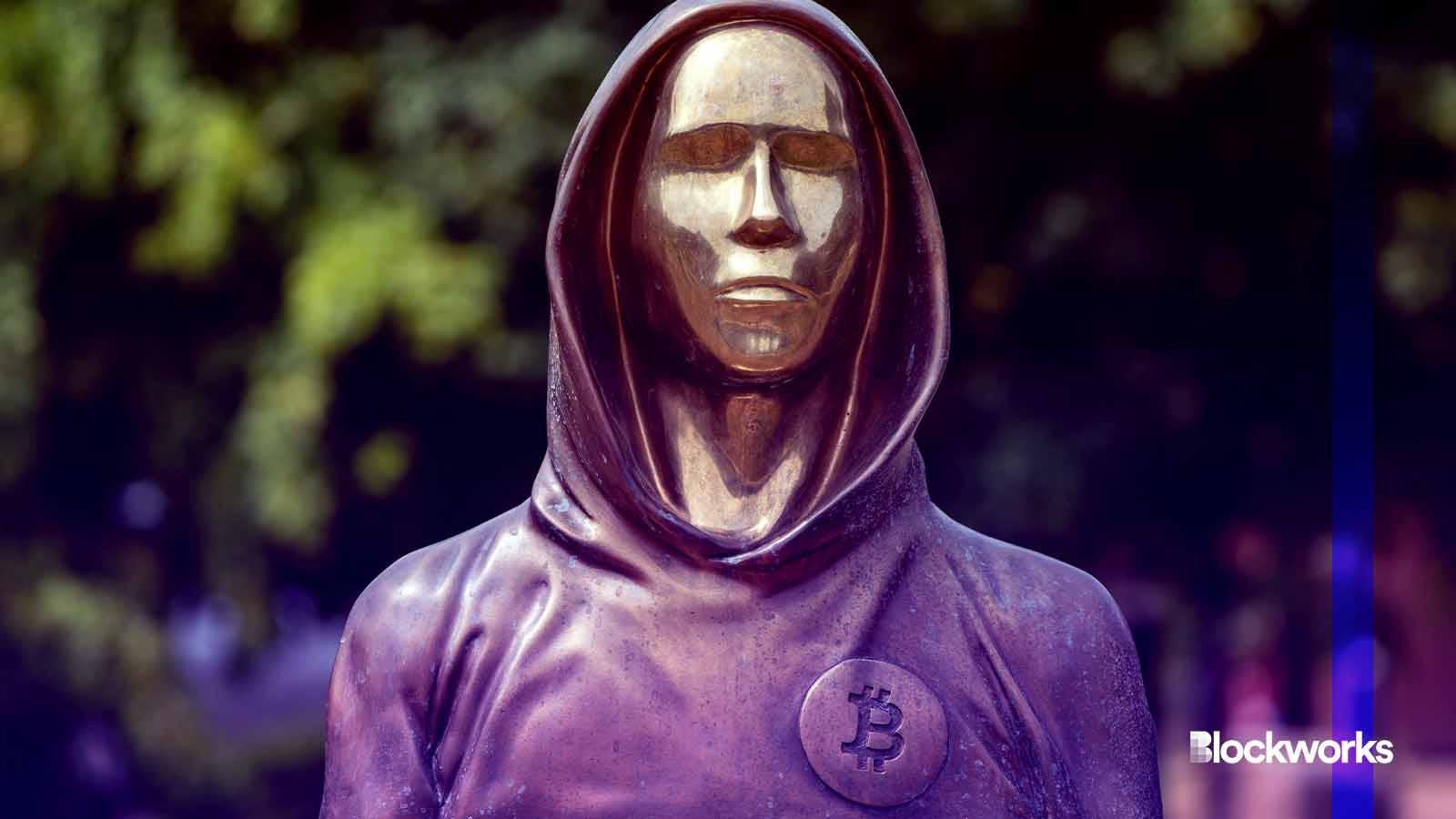Would the US arrest Satoshi Nakamoto if they returned today?
Opinion: Decels want to stop artificial intelligence before it takes over the world. Some say the US wants to do the same to crypto

Istvan Csak/Shutterstock modified by Blockworks
Decels, or decelerationists, are back in the spotlight thanks to the OpenAI soap opera. Sam Altman’s momentary ousting was, in one version of the story, an attempted coup by safety-obsessed doomers who worried he couldn’t be trusted to build such powerful technology.
Or, depending on which reports you believe, it was a move to mitigate Altman’s own hunger for corporate power.
And the US Securities and Exchange Commission is the top US “decel,” said former Kraken CEO Jesse Powell in response to a recent securities suit brought against the crypto exchange he co-founded.
Both debacles have shown us a fresh, exciting way to divide us by our philosophies: Are you a progress-loving accel (accelerationist) who embraces innovation at all costs, or are you an anxious decel eager to slow tech entrepreneurs down?
Accels would say amplifying capitalism is critical to humanity. They say we need more money, more funding and more entrepreneurs to discover all the technologies, from artificial intelligence to life extension, to concepts we’ve yet to even dream of.
“Effective acceleration” is the move until we hit the singularity, a point in the future where technology supersedes humanity altogether and runs the show from there (we clearly need some help).
Securities laws are so decel
It’s easy to see how accels and decels would butt heads over AI. If you believe in its potential, then the stakes are extremely high.
Decels are more anti-politiks who would rather we all take a beat and mull where this big ship is headed. Less “progress for the sake of progress,” more “make progress more difficult,” even if it means fewer Silicon Valley startups.
Despite the fact that Karl Marx himself may have been one of the very first accels, more hardline decels would argue powerhouses like Amazon and Walmart have been a net negative for society. Their proliferation only enriches a reactionary class of billionaires who’ve built empires on exploitation. Best antagonize them into slowing down.
But beyond hyperbitcoinization, there’s no crypto version of the singularity. It’s difficult to say what crypto-accels would strive for beyond anarcho-capitalism on the blockchain.
From crypto’s perspective, the US is the antagonizer intent on controlling its growth. The SEC has long pushed the idea that almost every cryptocurrency on the market is an unregistered security, even before Gary Gensler.
Not to mention, the Federal Reserve continuously refuses to award “master accounts” to startup banks operating in the crypto space — which would grant them, among other things, easy access to the US banking system and federal deposit insurance.
A truly accel US might open all capital controls and flood the ecosystem with funding — innovation no matter what, regardless of how many investors bottom out along the way.
Even a sorta-accel US would agree to the “safe harbor” proposed by dissenting Commissioner Hester Peirce, which would give crypto startups three years to rapidly innovate (read: decentralize) before having to worry about US securities laws.
The SEC has instead sued names including Ripple, Block.one, Justin Sun, Kik, Coinbase and now Kraken for alleged violations. The US is no longer a place where you can easily attempt to innovate with crypto.
Can’t extradite what you can’t locate
It wasn’t very accel of the DOJ, either, to force Binance founder Changpeng Zhao to step down as CEO over the breaches of the Bank Secrecy Act.
Of course, money laundering happens in crypto — it’s valuable money. You should see how much laundering happens in fiat or priceless art.
But so far, Bitcoin creator Satoshi Nakamoto has escaped any government attention (as far as we know, anyway).
That’s not to say that Satoshi Nakamoto wouldn’t be given the Changpeng Zhao treatment if they miraculously returned tomorrow. Ransomware is classed a national security threat, and almost all cases involve BTC as a medium of exchange.
If Zhao was responsible for money laundering and other sketchy activity flowing through his software, could regulators concoct a way to hold Nakamoto accountable for creating money so perfect for ransomware, even though centralized exchanges have little in common with the Bitcoin blockchain?
Probably. Dumber things have happened. Perhaps Nakamoto didn’t want to risk it — with one theory suggesting they disappeared after a meeting with the CIA.
The most accel thing the US ever did for crypto was concede there’s nobody to sue or extradite over the creation and utility of Bitcoin. In a way, this gave BTC cover to be classed a commodity. Although, that could be just because they have no idea who Nakamoto is or their whereabouts.
The second most accel thing was allowing the CFTC to approve ether (ETH) futures, laying the groundwork for its own commodity classification. But the path to that classification remains murkier, and until that changes, Jesse Powell’s point remains.
Jesse Powell’s warning for crypto startups who can’t afford to take on a costly legal battle with a largely decel US echoes his past stance on New York’s BitLicense, which prompted Kraken to exit the Empire State entirely all those years ago:
“Get your crypto company out of the US warzone.”
Get the news in your inbox. Explore Blockworks newsletters:
- The Breakdown: Decoding crypto and the markets. Daily.
- 0xResearch: Alpha in your inbox. Think like an analyst.






